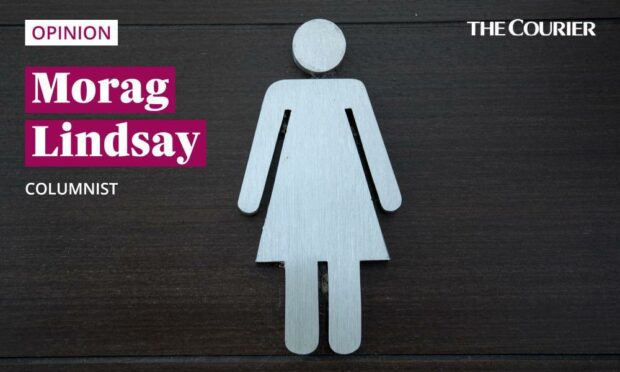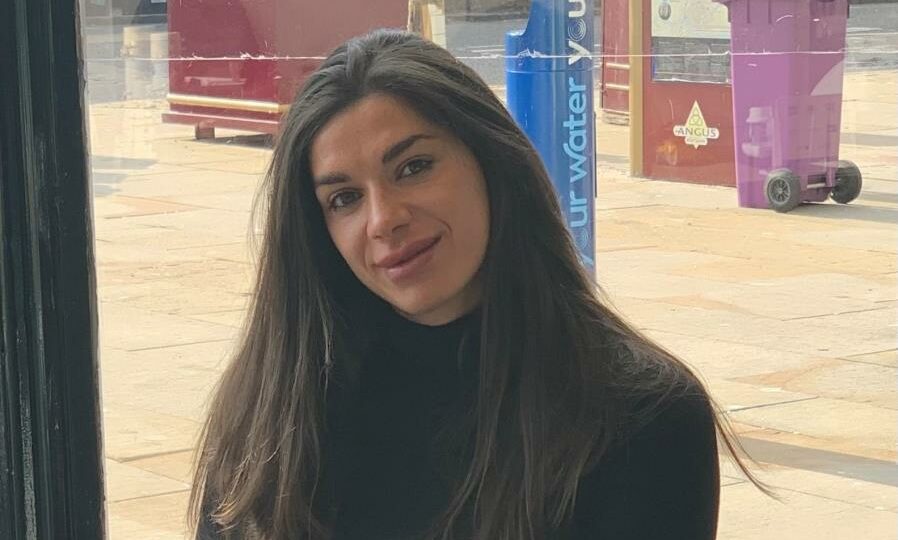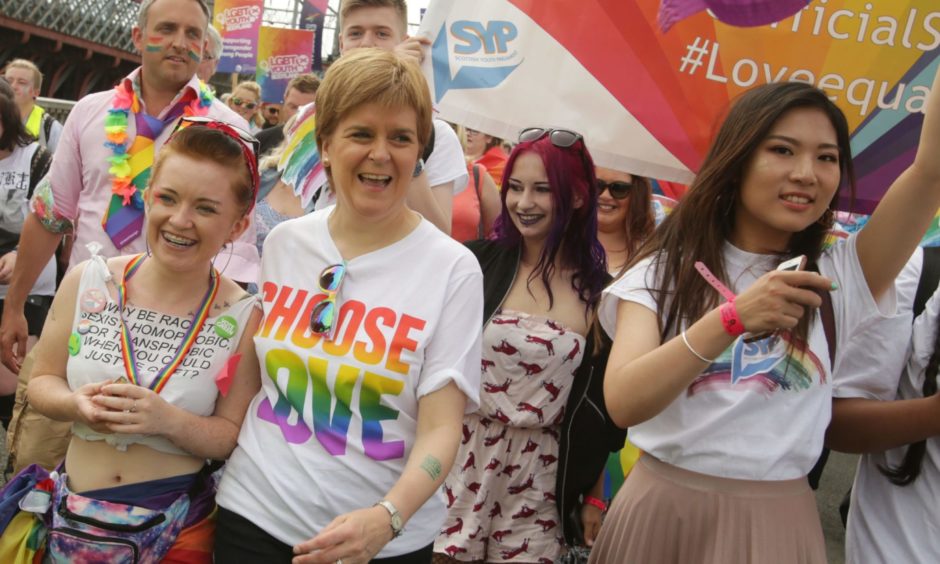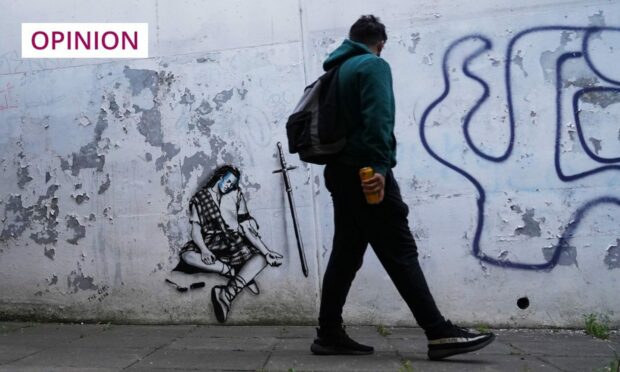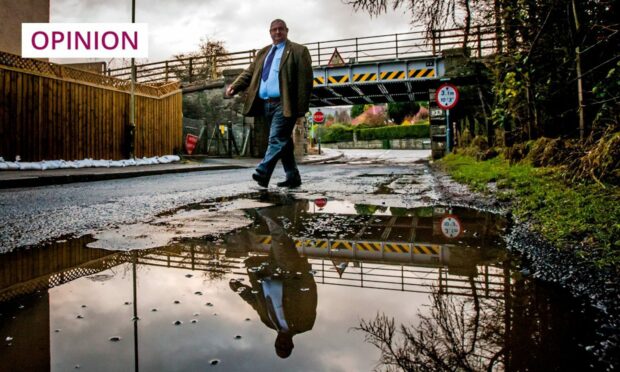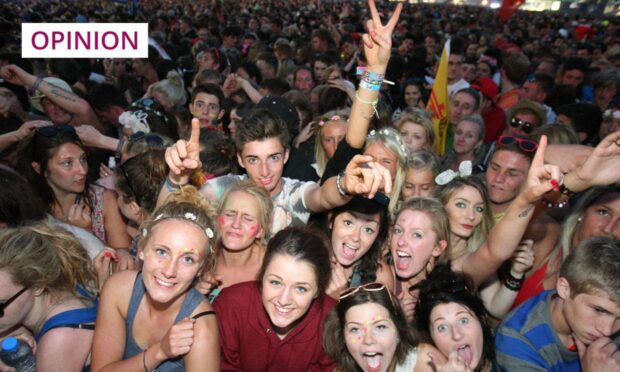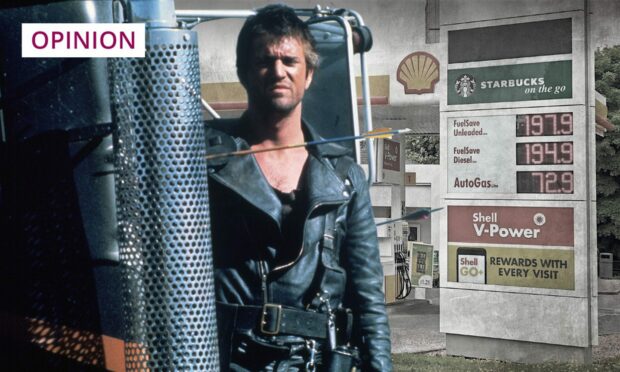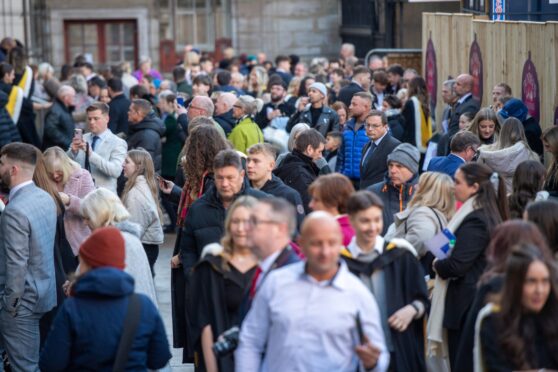I seem to have reached an age when I no longer care about what goes on in my own pants, never mind anyone else’s.
So the anger around the transgender debate in Scotland has left me cold.
At times I wondered if it was just me who wasn’t really bothered whether strangers identified as male, female or anything in between.
It doesn’t feel like any of my business.
But spend any time on social media and you’ll be left with the impression that everyone has Very Strong Opinions on the matter.
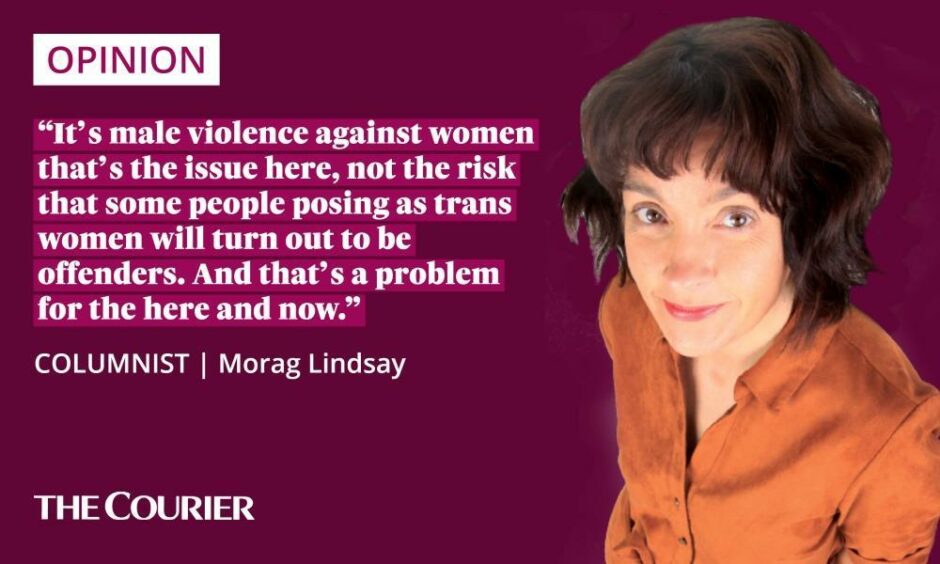
Father Ted creator Graham Linehan and Harry Potter author JK Rowling are among the famous tweeters who have chosen this particular hill to die on.
And the Scottish Government’s proposals to make it easier for people to change their gender has caused fissures in the formerly rock-solid SNP.
Lisa Keogh, who was investigated by Abertay University after fellow students complained when she said “women have vaginas”, revealed this week that she’ll be standing for the Alba Party at this year’s council elections.
That’s the Alba Party whose leader Alex Salmond reportedly said the SNP had been “captured by around a hundred loony tune transgender warriors” before he failed to win a seat at the Holyrood election in 2021.
So it was refreshing to see the results of a BBC poll this week, which paints an altogether less shouty picture.
Transgender survey suggests support
The survey sought the views of 2,038 people on a range of questions.
Interestingly two-thirds said they had not been following the trans debate closely.
Proposals to reduce the age at which a person can apply for a gender recognition certificate from 18-16 were opposed by more than half of respondents.
But a similar proportion, 57%, backed moves to make obtaining a gender recognition certificate easier for adults. Just 20% were in opposition.
Comedy writer Graham Linehan has joined protesters in Scotland campaigning against proposed changes to the Gender Recognition Acthttps://t.co/oCSRr5AHKp
— The Herald (@heraldscotland) July 20, 2021
Females were more likely than males to support GRC reform.
And 70% of 16-34 year-olds were in favour, compared to 46% in the 55+ age group.
Younger minds are more open
It’s probably no surprise that younger people were more supportive.
I spend far longer on social media platforms like Tiktok than is seemly for a person my age.
It’s where I’ve learned about things like chest binders and top surgery and hormone replacement therapy.
They crop up in my feed all the time, in between people dancing to Beyonce and comedy dogs.
@e2_sonyarose 🏳️⚧️🏳️⚧️🏳️⚧️🏳️⚧️🏳️⚧️ #YasClean #FindYourCore #transvisibilityday #transgender #blowthisup #soproudofher
Young people talk about these things.
It’s just not that strange to them.
They probably think the grownups are the weirdos for getting angry about changes to official documents to describe “people who have periods”, or “birth-givers”.
Male violence against women is real
But here’s a thing that’s struck me.
So much of the anger I see is around the perceived threat to women-only spaces.
The fear that men will exploit loopholes in the legislation to invade places where women are vulnerable.
There are valid concerns.
But I don’t see any discussion about the dangers of allowing people who were assigned female at birth into male toilets or changing rooms.
To be fair, when you can’t get a woman sacked, arrested or dropped by her publisher, and cancelling her only made her book sales go up, there’s really only one place to go. pic.twitter.com/MsNWXhWlyc
— J.K. Rowling (@jk_rowling) July 19, 2021
Surely it’s male violence against women that’s the pressing issue here, not the risk that some people posing as trans women will turn out to be offenders.
And that’s a problem for the here and now.
An estimated 736 million women around the world – almost one in three – have been subjected to physical and/or sexual violence at least once in their life.
Most violence against women is carried out by current or former husbands or intimate partners.
And every day 137 women are killed by a family member.
Bad men don’t need elaborate schemes to hurt us, they do it in broad daylight all the time.
So maybe we need to work harder at reducing violence among the 49% of the population we already know are male, instead of scapegoating the 0.5% who are trans.
From curiosity to bogeyman
The idea that people might be uncomfortable in the gender assigned to them at birth is not a new phenomenon.
There have been headlines about men “trapped in a woman’s body” and vice-versa for as long as I’ve been reading newspapers.
They’ve been treated as curiosities, not bogeymen. I don’t know if that’s any better.
I can think of a couple of male friends who have told me about colleagues who turned up on a Monday morning, wearing women’s clothes and answering to a woman’s name.
I guess that was them embarking on the two years that people are required to live in their acquired gender under the current law.
And it blows my mind to imagine the guts it must have taken to walk into an engineering office with a new identity, knowing the men you work beside would be going home to exclaim over it with their pals that night.
Can transgender people find acceptance?
Like I say, I’m verging on old.
I grew up laughing at Les Dawson and Dick Emery dressed as women with my granny on a Saturday night.
One of the most popular TV shows in my childhood was It Ain’t Half Hot Mum, whose star Windsor Davies bellowed catchphrases like “You is a flaming nancy boy and a poofta”.
And I knew people who lived and died without coming out to anyone but their closest friends.
But I like to think they’d have a more contented life now if they could have their time again.
And I like to hope the transgender arm of the LGBTQ rainbow might also know acceptance in a Scotland that’s kinder than the keyboard warriors would have you think.
